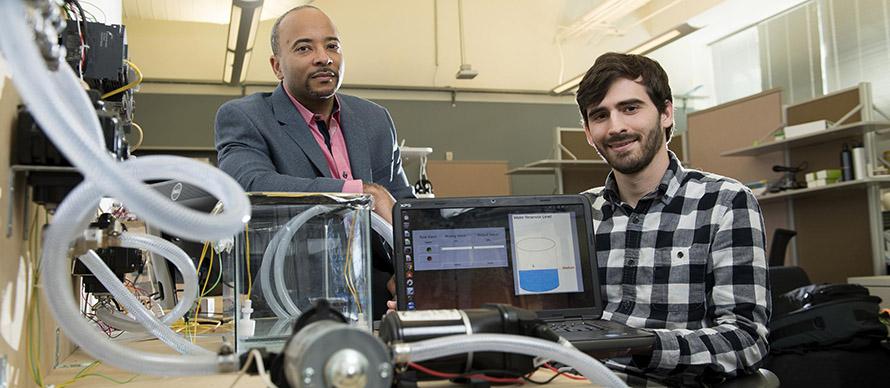
Computer Systems and Software creates novel computing environments for edge, cloud, and high-performance computing. Designs span low-power, reconfigurable microarchitectures to integrated hardware/software systems to large-scale distributed software and internetworked devices that communicate, learn, and intelligently adapt to the environment. Activities focus on optimizing cross-cutting characteristics, such as power/energy consumption, resiliency, and security.
Modern systems of all types rely heavily on software for their operation. Thus, it is becoming essential for all engineering students to be familiar with modern software design and development techniques. In many application areas, hardware is now a commodity and software provides the "value-added" proposition. The computer systems and software faculty in the School of ECE is widely recognized for its expertise and leadership in critical software systems areas such as networks, embedded systems, and computer and network security. Further, the optimization of energy and power has emerged as a driving design constraint in future systems. CSS faculty are engaged in projects that address several key aspects of energy/power management including new memory technologies, novel microarchitectures, and system techniques for use in real-time embedded applications through the data center and scientific computing at the Exascale.
Industry and government support for the computer systems and software group's academic and research programs enable students and faculty to remain on the leading edge of technological advances in this dynamic field. Students emerge from the program with an integrated base of knowledge in a broad cross section of computing disciplines, and are highly recruited by the nation's top high tech corporations. Virtually all computer systems and software PhD students receive funding support, either through teaching assistantships or research assistantships.
Research
The computer systems and software faculty and graduate students are involved in a broad range of basic and applied research programs, which are supported by government and industry sponsors. Major government sponsors include the National Science Foundation, DARPA, and the Department of Energy. Industrial sponsors include Intel, IBM, HP Labs, NVIDIA, and the Semiconductor Research Corporation.
Computer Systems and Software research falls within the following major areas:
- Computer Architecture
- Embedded Systems
- Computer Networks and Internetworking
- Distributed and Dependable Systems
- FPGAs and Reconfigurable Computing
- Computer System and Network Security
- Hardware/Software Co-design
- Cloud and Edge Computing
Academics
At the undergraduate level, the computer systems and software faculty are actively involved in teaching within the Computer Engineering curriculum, and is reflected in the technical interest group's curriculum. Both at the undergraduate and graduate levels, students interested in computer systems and software can pursue coursework spanning a diverse set of topics, ranging from design of integrated hardware/software systems to computer architecture to computer networks and distributed systems. Instructional opportunities also exist for students from other technical areas to gain a basic knowledge of software systems.



























